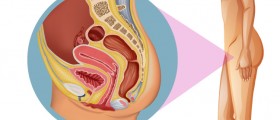
When a woman enters menopause, many changes occur in her body and they are mostly caused by changes in hormonal levels. One of those changes and processes affects the vagina whose tissues may shrink and become less elastic due to a decrease of estrogen levels. This may lead to a condition called atrophic vaginitis.
What is Vagifem?
Vagifem is an estrogen replacement medication that contains estradiol. It comes in the form of vaginal tablets that are used to prevent and treat atrophic vaginitis and its symptoms. These tablets release estrogen into the vagina so it does not have to go through the entire system.
Estrogen replacement is not recommended to everyone especially not women who have a history or family history of cancer. This is why it is advised to go through a complete medical exam before starting this therapy and to go to routine check ups at least once a year.
Side effects of Vagifem and estrogen replacement
Estrogen supplements may lead to some gastrointestinal problems, like nausea and vomiting. Gallbladder diseases are also more frequent in women who take estrogen.
Risks of oncologic diseases following an estrogen therapy are a widely discussed and researched matter and the results so far are controversial, and many studies have turned out to be inconclusive. Some state that estrogen therapy increases the risk of breast cancer, while some claim that estrogen therapy removes or delayes the risk of endometrial carcinoma.
As for the cardiovascular system, some studies suggest that it can benefit from estrogen therapy especially if combined with progesterone. On the other hand non-contraceptive uses of estrogen especially in smokers actually increase the risk of coronary disease like heart attack.
In some patients, especially those who have a family history of lipoprotein metabolic diseases the level of triglycerides in the blood serum was increased after taking estrogen therapy.
Some women have noticed changes in their libido after taking estrogen, and others reported fluid retention and mastodynia.
In some cases, long term contraceptive therapy, which contains estrogen, leads to liver tumors. It occurred less frequently in women on isolated hormone therapy.
Hypersensitivity reactions like anaphylaxis occurred in some women after taking estrogen replacement therapy.
It is believed that estrogen therapy can significantly increase the risk of fibrocystic breast disease.
In some cases, estrogen leads to bleeding from the uterus and the increase of the existing uterine fibroids.
Possible side effects also include dizziness, mood swings, depression, migraine, hair loss and an increased growth of body hair.













-During-Pregnancy_f_280x120.jpg)



Your thoughts on this
Loading...